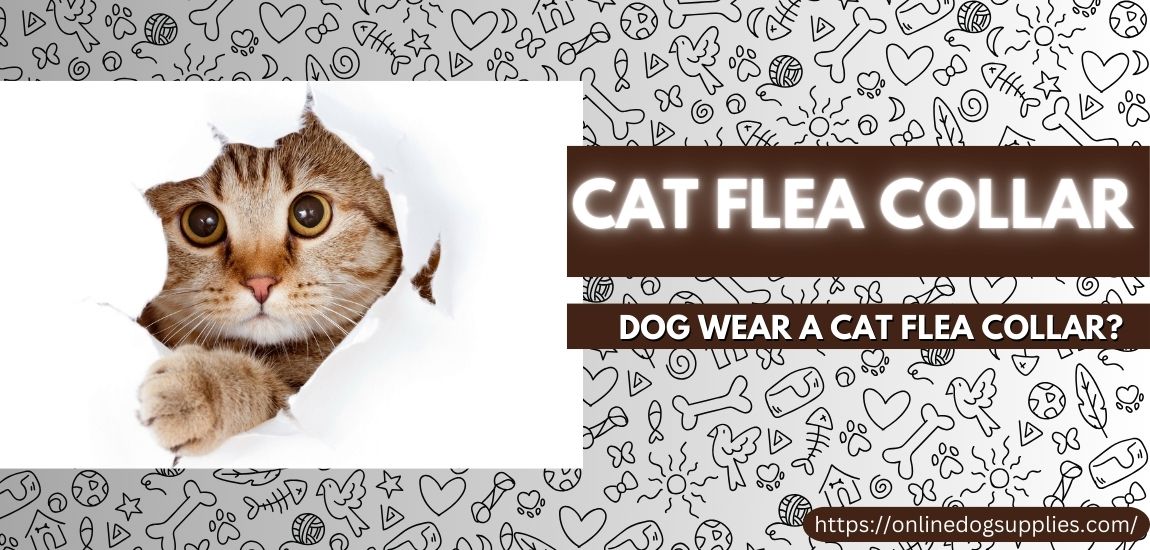When you’ve got furry little critters running all over your home, fleas can become a real nuisance. As a pet parent, you just want to protect Fido and Fluffy. But can your Dog Wear a Cat Flea Collar when his regular one runs out? Let’s dig into whether that’s a good—or bad—idea.
Flea Collars for Cats vs Dogs
At first glance, cat and dog flea collars seem pretty similar. But those little differences in ingredients can have big impacts on your pets’ health.
Cat collars typically contain insecticides like pyrethrins or indoles that are less toxic for felines. Dogs are bigger and process chemicals differently, so their collars use stronger stuff like permethrin that could poison little Kitty.
Cats also groom obsessively, so they’re more likely to lick or chew a collar. Ingredients meant for dogs could make them seriously ill if ingested.
So while the collars may fit both pets’ necks, their bodies handle flea medications in unique ways. The safest bet is to always use products specifically made for each species.
Emergency Exceptions When Dog Wears a Cat Flea Collar?
Now, I know accidents happen and emergencies arise. If Fido’s regular collar is kaput and the store’s closed, could a cat version tide him over temporarily? Possibly—but only with extreme caution:
- Only consider it for adult dogs, not pups or small breeds more prone to toxicity.
- Remove the collar if your dog starts drooling, vomiting seems lethargic, or has diarrhea.
- Don’t let them wear it during play, sleep, or unattended times when they could chew on it.
- Limit use to no more than 8 hours max before switching back to a dog product.
- Watch closely for any skin redness, swelling, or itching near the collar.
Even then, it’s a gamble on your pup’s well-being. Medical issues could still arise. If at all possible, wait until you can get the right stuff made just for dogs. Their safety should always come before convenience.
Healthier Homemade Alternatives
Rather than risk toxicity to pets, I’d suggest some temporary natural remedies until the store opens:
- Regularly brush your pets with a fine-toothed flea comb to manually remove pests.
- Sprinkle food-grade diatomaceous earth around your home and on pet beds—its silica structure dehydrates bugs.
- Apply a few drops of chamomile, rosemary, or eucalyptus oil mixed with water in a spray bottle for a plant-based repellent.
- Wash pet beds, collars, and soft toys in hot water to kill any hitchhiking fleas or eggs.
- Consider dropping off bedding at a commercial laundromat dryer for an extra-hot flea-killing cycle if needed ASAP.
With some lightweight preventive solutions, you can protect pups safely until acquiring the certified products designed just for them. Their well-being is worth waiting an extra day for if needed.
So Is It Ever Okay To Dog Wear a Cat Flea Collar?
In summary, while cat flea collars may physically fit a dog in an emergency pinch, their bodies handle insecticides differently. Sticking to canine-approved products formulated for a dog’s unique physiology and habits provides the surest protection without health risks down the line. With some patience and natural stopgaps, we can care for our pets properly until sourcing species-specific solutions. Their comfort shouldn’t be compromised for the sake of mere convenience when better options exist with short waiting.
FAQs About Dog Wear a Cat Flea Collar
Here are answers to common pet parent questions on this topic:
What if I accidentally put a cat collar on my dog? Remove it right away, then monitor closely for symptoms and contact your vet with any concerns.
Should I ever use cat shampoo or flea treatments on dogs? No, the concentrations aren’t tested or intended for a canine’s biology. Stick with products made specifically for dogs.
What if my dog and cat interact and play together? Get individual flea solutions made just for each species to prevent any risks from cross-contamination.
When is an exception allowed? Only in true emergencies when health depends on it—otherwise, wait patiently for the safe products made exactly for each pet’s needs.
What natural flea remedies work? Diatomaceous earth, herbal sprays, regular vacuuming & washing, and oral supplements like garlic can aid prevention when used consistently as part of an overall plan.


